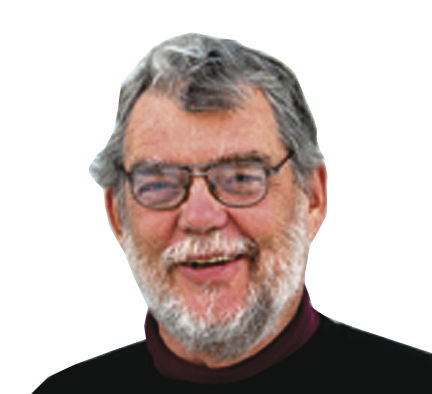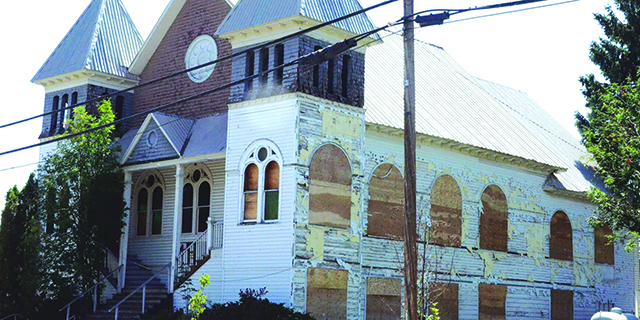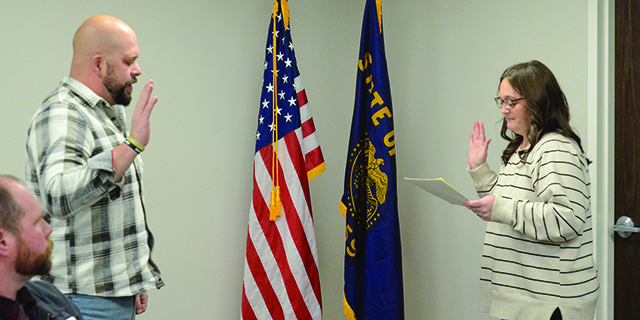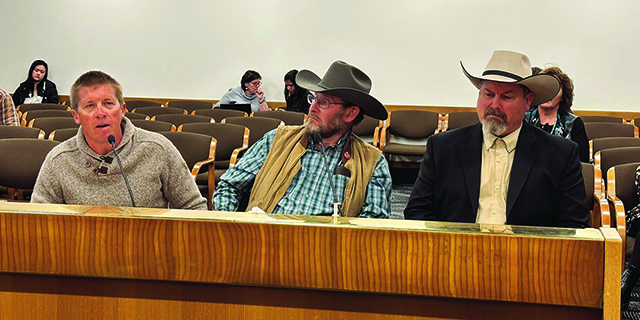MAIN STREET: ‘More’ has its deserved comeuppance
Published 5:00 pm Tuesday, March 19, 2013

- <p>Rich Wandschneider</p>
J.P. Morgan traders lose 2 billion or 6 billion.
I still have an image of Kenneth Lay, onetime CEO of Enron, hidden in a mansion, waiting for trial. This was after Enron traders had run California into electricity brownouts, run major accounting firms into bankruptcy, and run PGE employees in Oregon and thousands of other Enron employees out of their pensions. I think my image is from a news camera trying to get a glimpse of the highest-paid executive in America as he retreated into one of his many houses.
Trending
How many houses does a man need? If you are the highest-paid man in the land, is this how you differentiate yourself from the other rich? Fifteen houses, one of them a 12,000-square-foot Houston condo featuring nine bathrooms? No matter, Lay stuck around long enough to go to trial and be convicted, but not long enough to go to prison. He died of an apparent heart attack at his Aspen, Colo., ski vacation home while awaiting sentencing. More and many served him only so long.
In the past dozen years, in addition to the Enron energy fiasco, we have had Bernie Madoffs giant Ponzi scheme, the high-tech and housing bubbles, professional baseballs steroid-fueled home run bubble, the (recently disclosed) Lance Armstrong king of the cycling mountain doping scandal, and the overwhelming shock and awe attack on Baghdad that 10 years on has not given Iraq the freedom or the United States the victory promised.
While all of this has been going on I have been plodding through the work of Alvin Josephy, the historian of the West and advocate for American Indians who left a library and legacy for me to make sense of. As I read I find it hard to escape the idea that the white folks who started coming to the Americas 500 years ago were often driven by greed, and that more was always or soon became an American obsession.
Yes, some Protestants ran away from religious persecution at the hands of state churches and some Jews ran away from the Spanish Inquisition. Some Norwegians ran out of land at home and found modest footholds on the prairies. As decades of European wars and civil wars across the globe went on, a steady stream of draft dodgers and refugees swelled our population. And a prosperous American agriculture has drawn millions of low wage workers in search of a modest more across the borders during and since World War II. But the idea that American land was endless and available and full of treasures and almost free for the taking the early misnamed Indians being of lesser human stature and having a somehow diminished claim to ownership has been pervasive enough to get more into the American DNA.
The fur trade had trapped the beaver out of Europe when it found Americas beaver, and, starting in Hudsons Bay, marched across the middle of the continent all the way to the Pacific Ocean, trapping the beaver out as it went. Plantation agriculture built on a slave economy that enriched growers and an international cast of goods and slave traders grew the American South. The big runs of Columbia River salmon brought fish wheels and canneries that soon threatened to run the Northwest out of fish. Early Spanish adventurers looted Central and South American cultures of their gold and silver, and later gold strikes in California, Colorado, Oregon, Montana, and Alaska drew seekers from across the land and the seas to make their fortunes. The Chinese called it the Gold Mountain. Levi Strauss and other smart merchants and manufacturers found more money in goods than in the gold, but it was all part of the rush.
Todays headlines have the unemployment rate struggling back to reasonable, but corporate profits are up and the stock market is at record highs.
Trending
There is another America. Alongside my image of Kenneth Lay is another, more recent image, an Indian elder from The Dalles talking to an Oregon Public Broadcasting television program host about the Columbia River. Our people, he said, speaking for generations who were somehow still resident in his remarks, could not understand why they wanted to take all of the salmon.
Bubbles bust, climbers fall, and greed has its comeuppance. When we digest this, keep that more DNA in check, that other America, where everyone has one house and the salmon still run, will be here.
Main Street columnist Rich Wandschneider directs the Alvin M. and Betty Josephy Library of Western History and Culture housed at the Josephy Center for Arts and Culture, located in Joseph.









